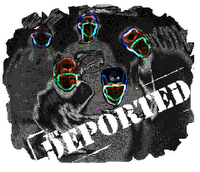 when people plead guilty to felonies, they are typically thinking about whether, where, and for how long they will be doing time. most probably know that they will lose other rights and statuses, but they may not realize that the plea can lead to their deportation.
when people plead guilty to felonies, they are typically thinking about whether, where, and for how long they will be doing time. most probably know that they will lose other rights and statuses, but they may not realize that the plea can lead to their deportation.
such is the case of luis alexander duenas-alvarez, a native of peru and permanent legal resident in the united states. he served three years for car theft in california, when immigration officials moved to deport him. this week, in gonzales vs. duenas-alvarez, the u.s. supreme court made it easier to deport aggravated felons, such as mr. duenas-alvarez. the ruling reverses the u.s. 9th circuit court of appeals, which had held that california’s law applied deportation too broadly.
i’ve written a lot about how convicted criminals can lose the right to vote, but i’m also interested in the myriad other collateral consequences of conviction — affecting employment, family life, housing, educational opportunities, receipt of public assistance and even citizenship status. deportation affects a relatively small number of convicted felons, though it surely ranks among the most serious and disruptive of the collateral sanctions.

Comments